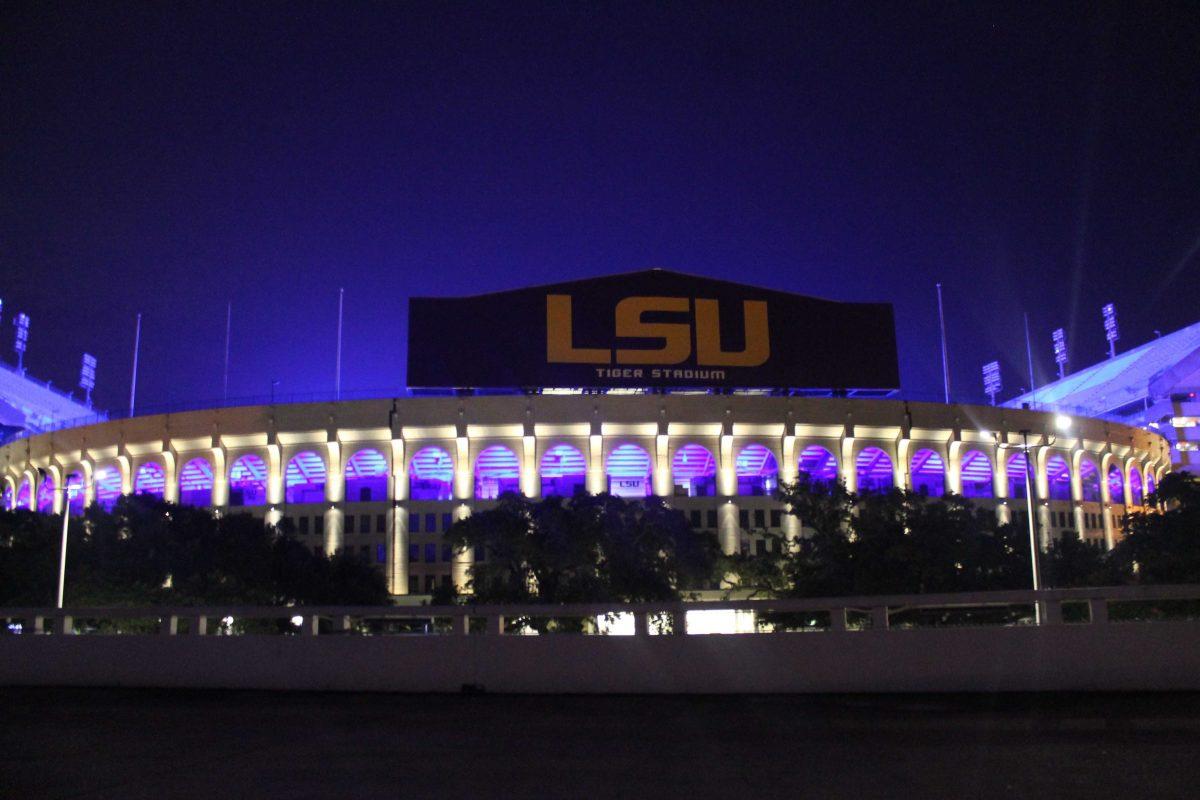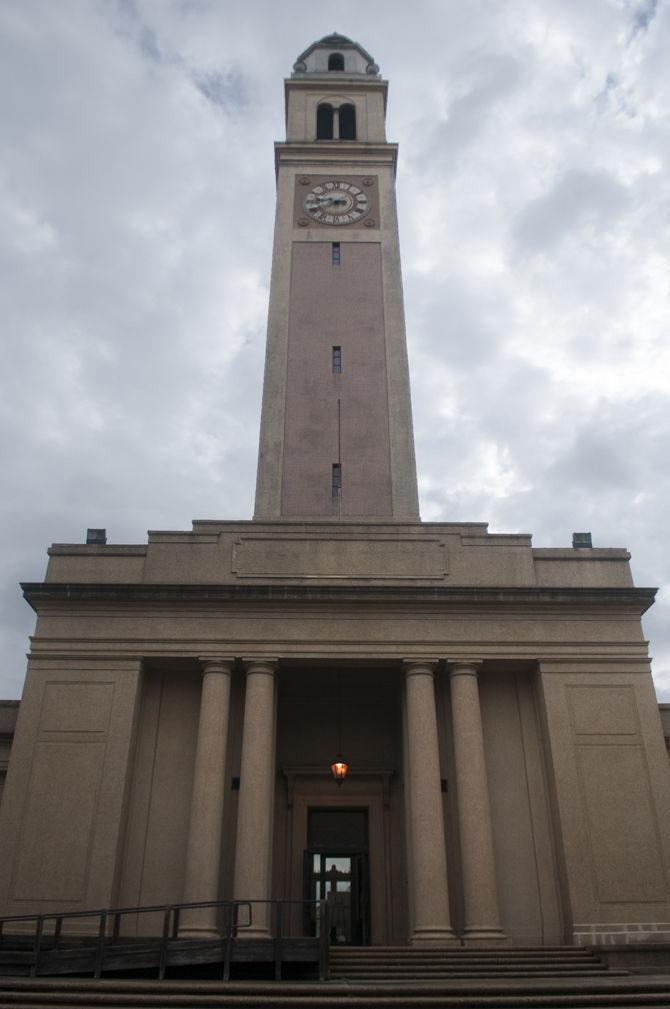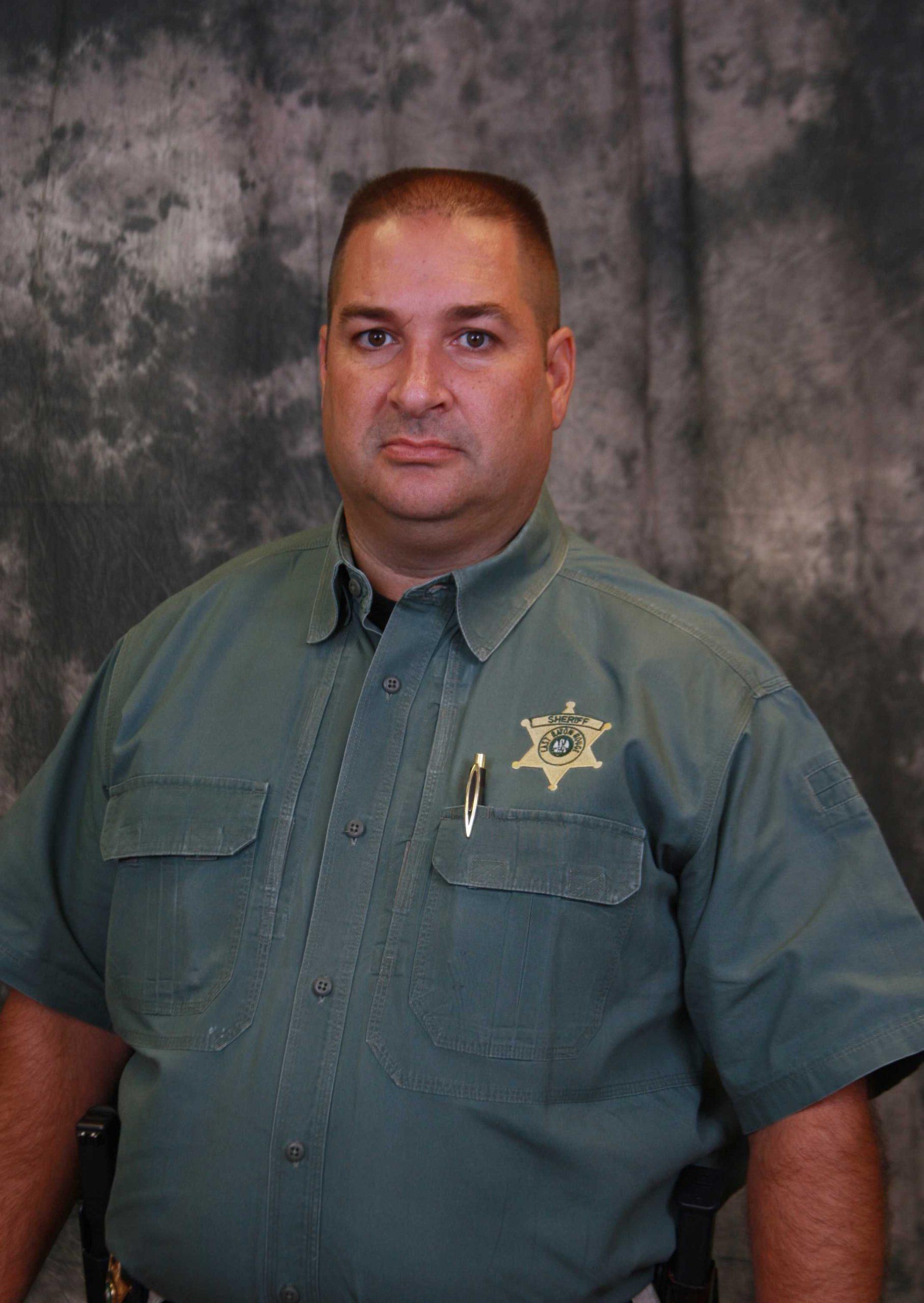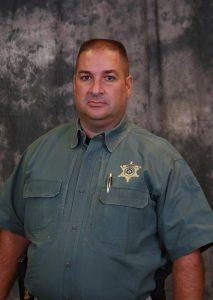More than 100 people gathered outside Memorial Tower for the Forever Baton Rouge vigil Wednesday afternoon following the shooting deaths of three law enforcement officers Sunday.
Student Government members, University administrators and community leaders stood together in the sweltering summer heat to promote a message of peace, unity and leadership in the face of hardship. Organizers addressed the death of the officers Sunday, as well as the death of Alton Sterling, the 37-year-old man who was killed during an altercation with police on July 5.
Rev. Raymond Jetson, the keynote speaker, said the events of Sunday and July 5 mark a pivotal moment in the Baton Rouge community. Jetson called on University students to stand as leaders and commit to bringing forward change in the community.
Jetson said change is necessary for the community to begin healing, but that healing cannot begin until we acknowledge there is a wound.
“It is critical that we recognize that there is a challenge before us, and pretending that it does not exist won’t make it go away,” Jetson said.
Jetson said young people have been catalysts of social change for generations, and it is important that young people are willing to face today’s challenges. The current generation of students needs to assume leadership roles now, not in the future, he said.
If action is not taken, this opportunity for change may become just another moment in history, he said.
“Are we going to once again be captivated by the allure and seduction of the moment?” Jetson said. “Or are we going to become a part of a movement?”
Vigil organizer and SG director of policy Monturios Howard proposed students begin making change through small actions. Howard said making a conscious effort to meet a diverse group of people on campus and in classes is a step toward promoting unity and love within the University community.
Howard said addressing our differences is a key step toward achieving unity.
“I think we have to find where we don’t meet in the middle,” Howard said. “We can talk about our similarities every day, there’s always going to be the things that we talk about. How can we talk about our differences and bring those to the forefront?”
Howard wasn’t shy about addressing his differences from his co-organizers.
Howard, president of the LSU NAACP, said he wore a black leather jacket to the vigil because it’s something he would typically wear to meet his black friends. Howard also reflected on his upbringing in a poor neighborhood of Monroe, Louisiana, and said today he chooses to focus on love and acceptance instead of being limited by his past.
Howard said despite their differences, he and his co-organizers, namely SG president Zack Faircloth, were united by a more important cause and common interest.
Faircloth said he felt it was important to host a University vigil because he knew students would need an opportunity to heal after Sunday’s frightening events. Faircloth said he wanted to provide a space where students could experience the same sense of community in their time of need as they experience on a fall Saturday.
Faircloth said SG was planning a unity vigil for the beginning of the semester, but the deaths Sunday illustrated immediate community need. Independent student organizers were planning a vigil for Tuesday, and the two groups decided to partner to host a larger event, he said.
Ph.D. candidate Trish Dean said she was devastated by Sunday’s senseless act of violence. Dean, a friend of slain Baton Rouge Police Department officer Montrell Jackson, said she attended the vigil to honor his life, his work and his legacy.
Dean said she hopes Baton Rouge residents can begin to address issues of oppression within the community and can start having difficult conversations. She said the University and University students can serve as a catalyst for bringing people together.
“I think LSU can be that common place where everyone can come together and unite with a shared purpose, shared compassion,” Dean said.
International student and geography Ph.D. candidate Peter Kamau said the University could serve as a mediator to help community members resolve their differences. The University has the facilities and community presence necessary to organize forums between leaders from black neighborhoods and the law enforcement community, he said.
Ph.D. candidate Adriana Alfaro agreed with Kamau. She said outreach is important to reduce the animosity shrouding community relations and can help foster peace and the formation of bonds.
More than 100 people gather on campus to mourn the loss of three local law enforcement officers
July 20, 2016
Tiger Stadium was lit up blue inside and out July 20, 2016 in memory of three slain Baton Rouge law enforcement officers.















